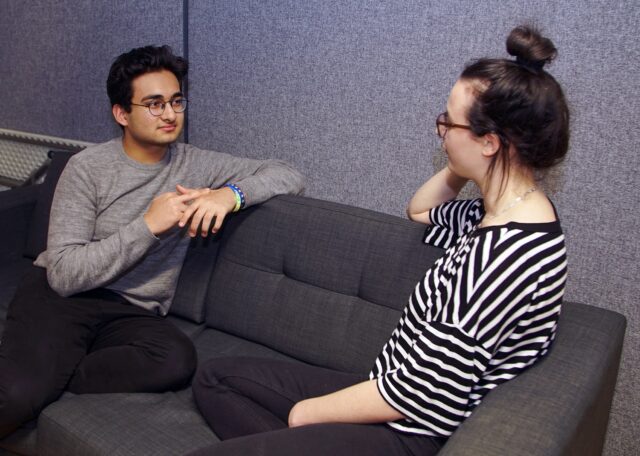Helping our partners react in real time to Covid

The coronavirus pandemic impacted on every community when it hit the UK in early 2020.
Lockdown restrictions and social distancing forced school and community centre closures, some of us may have lost loved ones or fell ill ourselves, and the way we engaged with our friends and family changed, potentially forever.
At the same time, 21 of our partners were delivering multi-year projects to tackle youth loneliness.
Supported through our Building Connections Fund partnership with the government and National Lottery Community Fund, these projects were doing everything from supporting young people with a vision impairment (Royal Society for Blind Children, London) to building a community of bereaved young people for peer support programmes (Edwards Trust, Birmingham) and connecting unemployed young people from urban and rural environments (Youth Focus: North East, Gateshead).
Covid resulted in delays and alterations to many of these projects as they adapted to new ways of working. Our evaluation partners, the social sector think tank consultancy NPC, continued their work, modifying their approached into a developmental evaluation to help partners respond to Covid in a more agile manner. Read how a developmental evaluation differs from more traditional methods.
NPC have now published their early reflections as part of Loneliness Awareness Week.
I highly recommend funders interested in developmental evaluations read these learnings to inform your future work. For those wanting to dip their toes into the water, here are a few key highlights.
Lessons learned
A developmental evaluation approach helped grant holders make informed decisions during uncertainty and change.
NPC embraced a developmental evaluation approach once Covid began to impact on our partners. This allowed partners to review their work on an ongoing basis and reflect in real time about what was working and what wasn’t. This, in turn, meant partners could also adapt their delivery to what they had learned. Phone calls were the most popular and effective way to collate this learning, proving we don’t always have to be on video calls (thankfully).
Co-creating the developmental evaluation is essential, but it takes time.
NPC worked with our partners to define what the final evaluation would look like once Covid began. This took time but everyone benefitted in the end with real-life learnings that could be put into practice quickly. Funders and evaluators should be honest and open from the start about how long this work will take for partners.
Funders and grant holders must buy-in to the learning process.
It was important that our funded partners owned the evaluation because they would be the ones who would be benefit and contribute the most, particularly during Covid. Final evaluation decisions were driven directly by their needs.
Flexibility and creativity are key when collecting data remotely.
Digital is important when collecting data remotely but it’s not everything. We also used postal surveys to understand what worked for our partners in communities. This was particularly important for those with less digital access. NPC have since suggested that a dedicated budget to help funded partners to take part in evaluations would be helpful.
Feedback data is useful and practical in a rapidly changing, unprecedented context.
Feeding back data and insight during an ongoing project helped partners to learn quickly and adapt their work in an agile manner. It was also important for partners to build on what they were already collecting in their day-to-day work. We should remember that feedback from young people about how an individual project is going is also really important insight that could help partners across the programme.
Real-time insights are useful but we need the right mechanisms to share learning.
Sharing data through accessible learning platforms like Slack is really important during a developmental evaluation, so people can benefit from learnings at pace. We struggled to facilitate this at the Co-op Foundation when the Fund launched, but we’ve since made steps to improve this for other funds, with many of them now engaged through groups we’ve set up on Microsoft Teams.
What’s next?
Thank you to NPC for sharing your reflections this week, as we mark Loneliness Awareness Week. I hope funders will find it useful for future work.
Follow Loneliness Awareness Week on Twitter.
